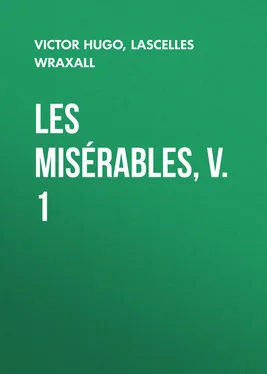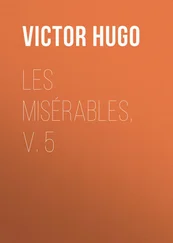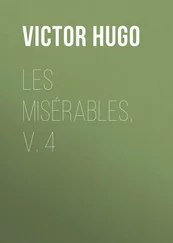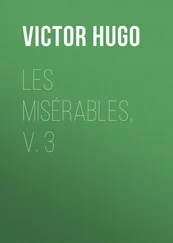Lascelles Wraxall - Les Misérables, v. 1
Здесь есть возможность читать онлайн «Lascelles Wraxall - Les Misérables, v. 1» — ознакомительный отрывок электронной книги совершенно бесплатно, а после прочтения отрывка купить полную версию. В некоторых случаях можно слушать аудио, скачать через торрент в формате fb2 и присутствует краткое содержание. Жанр: literature_19, foreign_antique, foreign_prose, на английском языке. Описание произведения, (предисловие) а так же отзывы посетителей доступны на портале библиотеки ЛибКат.
- Название:Les Misérables, v. 1
- Автор:
- Жанр:
- Год:неизвестен
- ISBN:нет данных
- Рейтинг книги:4 / 5. Голосов: 1
-
Избранное:Добавить в избранное
- Отзывы:
-
Ваша оценка:
- 80
- 1
- 2
- 3
- 4
- 5
Les Misérables, v. 1: краткое содержание, описание и аннотация
Предлагаем к чтению аннотацию, описание, краткое содержание или предисловие (зависит от того, что написал сам автор книги «Les Misérables, v. 1»). Если вы не нашли необходимую информацию о книге — напишите в комментариях, мы постараемся отыскать её.
Les Misérables, v. 1 — читать онлайн ознакомительный отрывок
Ниже представлен текст книги, разбитый по страницам. Система сохранения места последней прочитанной страницы, позволяет с удобством читать онлайн бесплатно книгу «Les Misérables, v. 1», без необходимости каждый раз заново искать на чём Вы остановились. Поставьте закладку, и сможете в любой момент перейти на страницу, на которой закончили чтение.
Интервал:
Закладка:
On his tours the Bishop was indulgent and gentle, and preached less than he conversed. His reasonings and models were never far-fetched, and to the inhabitants of one country he quoted the example of an adjacent country. In those cantons where people were harsh to the needy he would say, "Look at the people of Briançon. They have given the indigent, the widows, and the orphans, the right of mowing their fields three days before all the rest. They rebuild their houses gratuitously when they are in ruins. Hence it is a country blessed of GOD. For one hundred years not a single murder has been committed there." To those eager for grain and good crops, he said, "Look at the people of Embrun. If a father of a family at harvest-time has his sons in the army, his daughters serving in the town, or if he be ill or prevented from toil, the Curé recommends him in his sermon; and on Sunday after Mass all the villagers, men, women, and children, go into his field, and cut and carry home his crop." To families divided by questions of money or inheritance he said, "Look at the Highlanders of Devolny, a country so wild that the nightingale is not heard once in fifty years. Well, when the father of a family dies there the boys go off to seek their fortune, and leave the property to the girls, so that they may obtain husbands." In those parts where the farmers are fond of lawsuits, and ruin themselves in writs, he would say, "Look at those good peasants of the valley of Queyras. There are three thousand souls there. Why, it is like a little republic. Neither judge nor bailiff is known there, and the Mayor does everything. He divides the imposts, taxes everybody conscientiously, settles quarrels gratis, allots patrimonies without fees, gives sentences without costs, and is obeyed because he is a just man among simple men." In villages where there was no schoolmaster he again quoted the people of Queyras. "Do you know what they do? As a small place, containing only twelve or fifteen hearths, cannot always support a master, they have schoolmasters paid by the whole valley, who go from village to village, spending a week in one, ten days in another, and teaching. These masters go the fairs, where I have seen them. They can be recognized by the pens they carry in their hat-band. Those who only teach reading have but one pen: those who teach reading and arithmetic have two: those who teach reading, arithmetic, and Latin, have three. But what a disgrace it is to be ignorant! Do like the people of Queyras."
He spoke thus, gravely and paternally. When examples failed him he invented parables, going straight to the point, with few phrases and a good deal of imagery. His was the eloquence of the Apostles, convincing and persuading.
CHAPTER IV
WORKS RESEMBLING WORDS
The Bishop's conversation was affable and lively. He condescended to the level of the two old females who spent their life near him, and when he laughed it was a schoolboy's laugh. Madame Magloire was fond of calling him "Your Grandeur." One day he rose from his easy chair and went to fetch a book from his library: as it was on one of the top shelves, and as the Bishop was short, he could not reach it "Madame Magloire," he said, "bring me a chair, for my Grandeur does not rise to that shelf."
One of his distant relatives, the Countess de Lô, rarely let an opportunity slip to enumerate in his presence what she called the "hopes" of her three sons. She had several very old relatives close to death's door, of whom her sons were the natural heirs. The youngest of the three would inherit from a great-aunt 100,000 francs a year; the second would succeed to his uncle's dukedom, the third to his grandfather's peerage. The Bishop generally listened in silence to this innocent and pardonable maternal display. Once, however, he seemed more dreamy than usual, while Madame de Lô was repeating all the details of their successions and "hopes." She broke off somewhat impatiently. "Good gracious, cousin," she said, "what are you thinking, about?" "I am thinking," said the Bishop, "of something singular, which, if my memory is right, is in St. Augustine. Place your hopes in the man to whom it is impossible to succeed."
On another occasion, receiving a letter announcing the death of a country gentleman, in which, in addition to the dignities of the defunct, all the feudal and noble titles of all his relatives were recorded, – "What a back death has! what an admirable burthen of titles he is made lightly to bear," he exclaimed, "and what sense men must possess thus to employ the tomb in satisfying their vanity."
He displayed at times a gentle raillery, which nearly always contained a serious meaning. During one Lent a young vicar came to D – and preached at the cathedral. He was rather eloquent, and the subject of his sermon was charity. He invited the rich to give to the needy in order to escape hell, which he painted in the most frightful way he could, and reach paradise, which he made desirable and charming. There was among the congregation a rich, retired merchant, somewhat of a usurer, who had acquired two million francs by manufacturing coarse cloths, serges, and caddis. In his whole life-time M. Géborand had never given alms to a beggar, but after this sermon it was remarked that he gave every Sunday a sou to the old women begging at the cathedral gate. There were six of them to share it. One day the Bishop saw him bestowing his charity, and said to his sister, with a smile, "Look at M. Géborand buying heaven for a sou."
When it was a question of charity he would not let himself be rebuffed even by a refusal, and at such times made remarks which caused people to reflect. Once he was collecting for the poor in a drawing-room of the town. The Marquis de Champtercier was present, a rich old avaricious man, who contrived to be at once ultra-Royalist and ultra-Voltairian. This variety has existed. The Bishop on reaching him touched his arm, "Monsieur le Marquis, you must give me something." The Marquis turned and answered dryly: "I have my own poor, Monseigneur." "Give them to me," said the Bishop. One day he delivered the following sermon at the cathedral: —
"My very dear brethren, my good friends, there are in France thirteen hundred and twenty thousand peasants' houses which have only three openings; eighteen hundred and seventeen thousand which have only two openings, the door and the window; and, lastly, three hundred and forty-six thousand cabins which have only one opening, the door, and this is because of a thing called the door and window tax. Just place poor families, aged women and little children, in these houses, and then see the fevers and maladies! Alas! God gives men fresh air, and the law sells it to them. I do not accuse the law, but I bless God. In the Isère, in the Var, in the two Alps, Upper and Lower, the peasants have not even trucks, but carry manure on their backs: they have no candles, and burn resinous logs and pieces of rope steeped in pitch. It is the same through all the high parts of Dauphiné. They make bread for six months, and bake it with dried cow-dung. In winter they break this bread with axes and steep it in water for four-and-twenty hours before they can eat it. Brethren, have pity, see how people suffer around you!"
A Provençal by birth, he easily accustomed himself to all the dialects of the South: this greatly pleased the people, and had done no little in securing him admission to all minds. He was, as it were, at home in the hut and on the mountain. He could say the grandest things in the most vulgar idioms, and as he spoke all languages he entered all hearts. However, he was the same to people of fashion as to the lower classes.
He never condemned anything hastily or without taking the circumstances into calculation. He would say, Let us look at the road by which the fault has come. Being, as he called himself with a smile, an ex-sinner, he had none of the intrenchments of rigorism, and, careless of the frowns of the unco' good, professed loudly a doctrine which might be summed up nearly as follows, —
Читать дальшеИнтервал:
Закладка:
Похожие книги на «Les Misérables, v. 1»
Представляем Вашему вниманию похожие книги на «Les Misérables, v. 1» списком для выбора. Мы отобрали схожую по названию и смыслу литературу в надежде предоставить читателям больше вариантов отыскать новые, интересные, ещё непрочитанные произведения.
Обсуждение, отзывы о книге «Les Misérables, v. 1» и просто собственные мнения читателей. Оставьте ваши комментарии, напишите, что Вы думаете о произведении, его смысле или главных героях. Укажите что конкретно понравилось, а что нет, и почему Вы так считаете.












